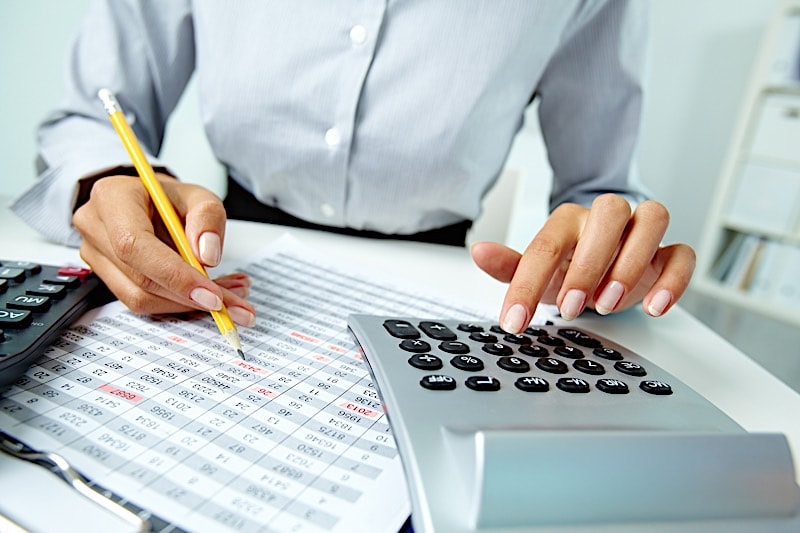IDEAL OF GOOD BUSINESS.
What CPAs do
Gain a better understanding of the accounting profession by learning about the various strengths, roles and functions of Chartered Professional Accountants (CPAs).
CPAs play key roles within diverse segments of the economy including industry, public accounting, government, education and the not-for-profit sector. They offer a strong set of accounting and managerial skills required for today’s complex and evolving environment. CPAs are broad-minded, forward-thinking professionals who undertake appropriate analysis, exercise good judgment, communicate effectively and act to protect the public interest.
INDUSTRY
CPAs working in industry provide valuable input on key decisions, apply a unique blend of expertise to identify new market opportunities, ensure corporate accountability, manage risk and help the company maintain a long-term competitive advantage.
GOVERNMENT
CPAs work at all levels of government providing accounting expertise to guide financial planning and to maintain fiscal control. Roles include tax auditors, policy planners and financial analysts.
EDUCATION
Many CPAs are educators who teach future leaders about business, values and ethics

Rental Property Accounting Basics
If you’re a busy real estate investor managing a portfolio of rental properties, it might be tempting to let administrative work fall to the wayside. For instance, bookkeeping is something that tends to take the back burner for entrepreneurs who don’t particularly enjoy filing receipts or reconciling expenses. However, setting up a strong rental property accounting system is a must for running a well-oiled real estate business and making sure you get the most out of your investments. Furthermore, learning accounting basics and setting up an efficient accounting system early on will give you the time to focus on profit-making activities
Rental Property Bookkeeping
Before getting started, it’s helpful to understand the functions of bookkeeping and accounting, and how they are related to one another. Bookkeeping is the recording of financial transactions for individuals or businesses. These records are what entrepreneurs can use to analyze the financial performance of their business, otherwise known as accounting.
When managing a portfolio of rental properties, you will want to ask yourself some of the following questions: how will you manage the constant flow of rent checks, management fees and maintenance invoices? How do you know which of your properties are eating into your profits? Staying on top of your bookkeeping is the solution to safeguarding your business and maximizing your financial performance. Below are the steps for setting up a solid bookkeeping system for your rental properties. Be sure to familiarize yourself on the benefits of real estate bookkeeping so that you can fully get yourself on board.
Separate Personal And Business Accounts
Set yourself up for success by separating your personal and business finances with proper rental property bookkeeping. Open financial accounts for your business, such as checking and savings accounts, credit cards and debit cards. This separation ensures that all the income and expenses flowing in and out of your business doesn’t get mixed up with your personal affairs. Creating savings accounts is an important tool for earmarking future rental property expenses, such as capital expenditures and vacancies, as well as holding on to security deposits.
Differentiate Property Accounts
As you grow your business, be sure to open separate accounts for each rental property that you own. By doing so, your income and expenses will be kept separate on a per-property basis. By avoiding commingling, your life will be much easier when it comes time to reconcile, prepare profit and loss statements, and file taxes. In addition, keeping your financial data unique to each property will allow you to identify any particular properties or units that are eating into your rental income.

Best Accounting Blogs You Should Be Reading
As an accounting professional, you do so much more than just number crunching; you create a financial strategy, give strategic advice, comply with the latest tax regulations, take actions to save money for the client, boost revenue in their business, and the list has just started.
But, accounting is a constantly evolving industry and has so many subcategories, so you cannot thrive by limiting yourself to the stagnated accounting skills. To grow, innovate, and become an exceptional accounting professional, you need to learn and develop your skills continuously
Accounting Today
Accounting Today is one of the most famous accounting news, trade magazine and informative blog on the Internet. It is one of the best resources for public accountants and professionals who offer tax preparation, bookkeeping, and financial services to individuals, small business, and SMBs
AICPA Insights
AICPA (American Institute of CPAs) Insights is undoubtedly among the most well-known accounting blog. It features posts from AICPA staff, accounting experts, thought leaders on a variety of topics such as CPA practices, Tax, Cybersecurity, Personal Financial Planning, and Technology.
AccountingWEB
AccountingWEB is one of the leading online communities for CPAs and accountants, offering insights, news, and ideas from accounting industry leaders. Most of their content is focused on technology, CPA practice, and tax. If you want to stay up to speed with the state of the accounting industry, AccountingWEB is worth following.

Best Excel Skills for Accountants
The resources that are available to accountants continue to expand, but Microsoft Excel remains one of the profession’s most widely used tools. As Microsoft 365 (formerly known as Office 365) accelerates its expansion in the cloud, Excel will continue to serve as an industry and professional standard that accountants will need to respect.
When looking at smaller accounting companies, this percentage goes even higher. The seminal spreadsheet tool gained even more traction when the American Institute of CPAs (AICPA) replaced its proprietary spreadsheet with Excel for its 2018 and subsequent CPA exams
Learning Excel has never been more important, and the platform continues to add to its list of features. The following is a list of the most important Excel skills for accountants, but it is by no means a full set—professionals are encouraged to consistently update their knowledge of the spreadsheet program, especially as the product updates itself from time to time.
Filling and formatting
No less than Warren Buffett has explained the importance of business efficiency in every profession. Whether you subscribe to the 80/20 rule of productivity or Buffett’s 5/25 of goal setting, shortening the time you spend in rote data entry and formatting helps to increase your efficacy as an accountant.
Sparkline charts
A chart line is a feature that allows you to embed charts inside cells, greatly improving your ability to consolidate large amounts of information into a single spreadsheet. The chart can be in a number of formats, including win/loss, bar or line format

What information does your accountant need to prepare your accounts and tax return?
With the Tax Return deadline fast approaching, there are probably thousands of business owners frantically packing a year’s worth of receipts into bags and boxes, ready to drop them into their accountant’s office.
Invariably, this unique filing system is flawed, so it is likely that a phone call from the accountant will follow. Possibly asking for additional bank statements, maybe even asking for paperwork that relates to the correct tax year
Your Tax Return needs to show ALL of your income so it’s better to run something past your accountant if you’re unsure rather than making the decision not to declare it yourself.
ACCOUNTS RECORDS
Your bank statements for ALL of your business accounts and for the WHOLE period. You’ll probably have one main account, but if you have a deposit account or a reserve account, they’ll still need to see the statements to track any movement during the year. Even if it’s just 6p interest. Oh and also include any cheque books and paying in books if you still use these.
Your loan statements. I know the bank is sometimes unhelpful and only sends out calendar year statements, but your accountant will need to know the closing balance as at your year end date. The interest suffered is a tax deductible expense, so if getting the balance is fiddly, it’s worth doing.
If you have a business credit card, then they’ll need these statements too. If it’s a personal card that you occasionally pay for business expenses on, spend the time highlighting these.
Details of any finance agreements taken out during the year. If you’ve got a new hire purchase, you must let your accountant know. The interest on the repayments is a tax deductible expense and the asset could fall under the annual investment allowance. Failure to disclose a new piece of equipment could add hundreds of pounds to your tax bill. Find that agreement!
All your payroll records for the year (unless your accountant runs your payroll of course). You’ll need a print out of each month’s pay run so they can reconcile the net payments made to employees. Make sure your reports show employers national insurance; so payslips are not enough.
All of your sales income. So all of your sales invoices for the year (regardless of whether they have been paid or not). If you run an online shop then your accountant will need your total sales before any fees were deducted.
All of your purchase invoices and expenses receipts for the period. If your accountant doesn’t have these then they may need to make assumptions and/or some expenses could be missed out all together, increasing your tax bill.
Petty cash receipts and also a note saying the petty cash balance at the year end. Your accountant will need to reconcile your cash so this vital.
An estimate of your stock value as at 31 March. I know it was a long time ago, but even if you can say that you only keep a weeks worth of purchases is a good starting point.
If you trade through a Limited Company, then keep a log of any business mileage that you do. Keep in mind that business mileage is not driving to work every day; instead it’s travelling to courses and your accountants, those kind of things.